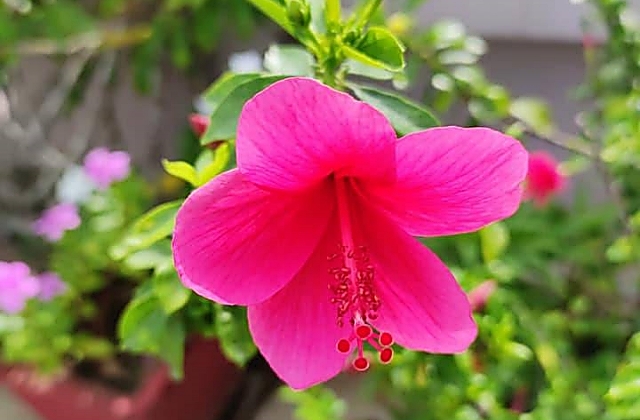Getting To Know The Things On Apartment Gardening

When it comes to apartment gardening, there are some basics that you should know. These include the type of plant you chose, what you will be growing, and the climate you live in. This can make a world of difference in the type of plants you choose. Not all plants are suited to your particular environment. Also keep in mind the location of your apartment building and the overall layout of your apartment.
The type of plants you choose should depend on the season. This is especially important for flowers. Flowers will usually bloom during the warmer parts of the year which is why they are such an important part of apartment landscaping.
There are different ways that you can go about planning an apartment garden. You may want to consult a landscape designer so that they can show you a design that will best suit your needs. You might want to do this because it will be something that you will enjoy doing. However, if you are artistic you can design your own. A landscape designer can be very expensive.
When it comes to planting the plants you need to know which ones will need more sun or shade. This will help determine what to plant where. Also keep in mind how much of each type of plant you have. If you have too many of one type you may end up over planting. This will actually destroy the whole garden and make you start all over again.
The best time to plant your garden is spring. This is the proper time for new growth. If you wait until summer to plant your garden you will end up with an over abundance of one type of plant and no room for new growth. This can be frustrating and cause your apartment building maintenance department plenty of headaches. Spring is the best time.
Keep in mind that there are three different kinds of plants you can place in your apartment. One is the flower. There are plenty of flowers that grow well in small containers indoors. Two are shrubs and the third is vegetables.
Some apartment gardens in Tampa are starting out with one type of plant and plan on expanding as the seasons pass by. This is great because they get to see what they will have to grow with as they continue to plant. It also helps them learn what works and what does not work. Most gardening books will tell you what works best.
Once you have planted your plants it is a good idea to fertilize and water them daily. Fertilizer needs to be applied at the right time of the day. If it is done too late in the day, the plants may not be able to absorb it. This will affect the growth of the plants and could cause them to not thrive. Watering them weekly is ideal. Remember to check your gardening supplies when you buy your fertilizer or irrigation system to make sure you get the correct product for the type of plants you have.
When apartment gardens in Tampa first germinate it is important to space the plants properly. Having only one plant is not a good idea because it will not grow as fast. If the space between each plant is more than six inches, it will be harder for the roots to get the light they need. You should space your plants at least four feet apart, but the closer you can keep them the better.
When you add soil to your garden it is important to do so the right way. In most cases the soil you use when gardening inside an apartment is very different from what you would use outside. The soil you use in apartment gardens should be made with gypsum so it will hold moisture when the plants start to grow. It should also be mixed with compost to help the roots grow properly.
When you first start gardening inside an apartment garden you will probably want to plant all your plants in one large bed. Once your plants are healthy you can then spread out smaller plants in individual spaces. This allows the plants to grow at their own pace and not against the other plants in the garden.
You will have to water your plants every day. When they are new, you may only need to water once a week. Over the course of a year, you will need to water your plants more often. Because you are gardening indoors, you don’t have to worry about bad weather because your apartment is usually sealed. This makes apartment gardens very safe places to grow plants.